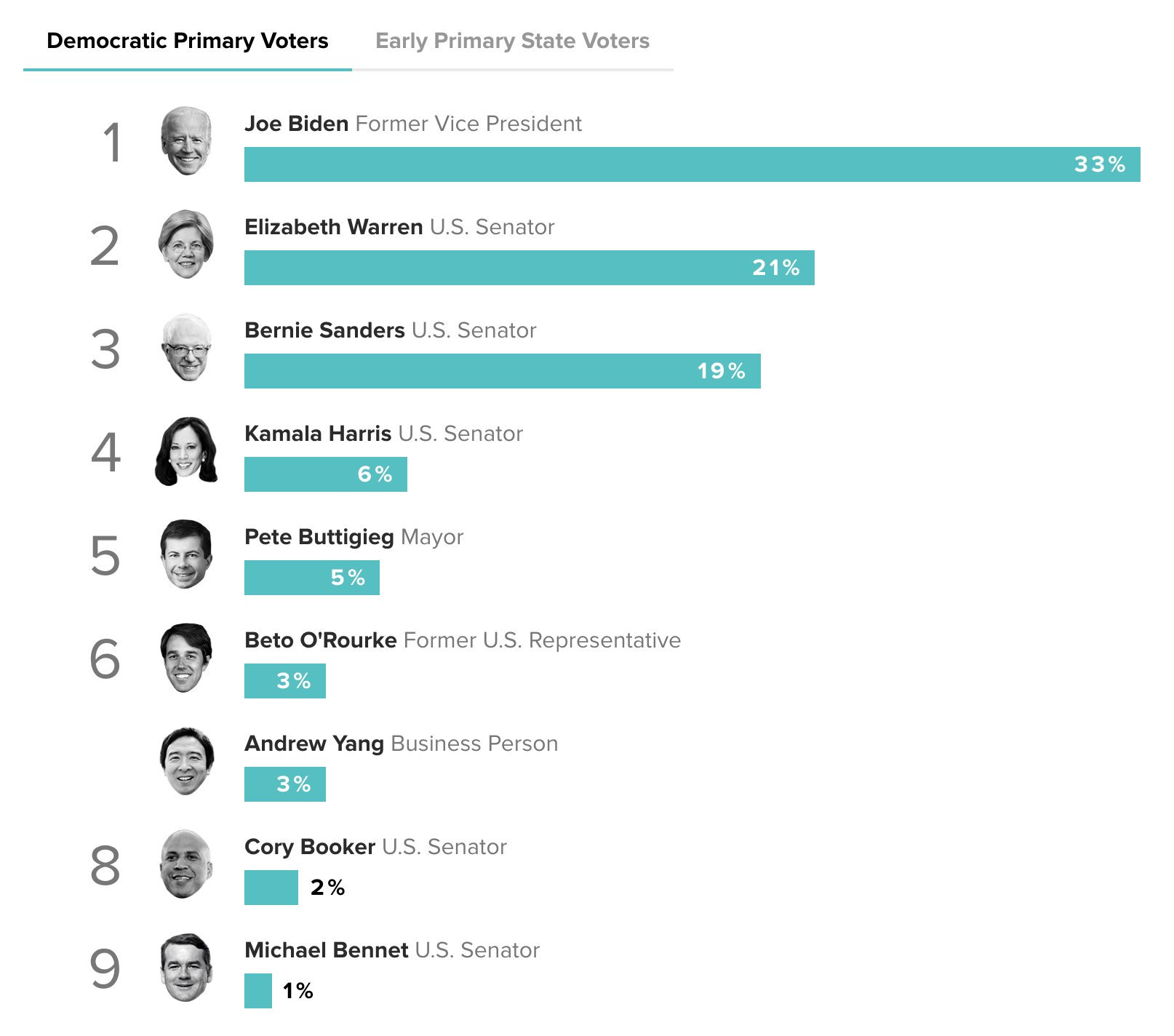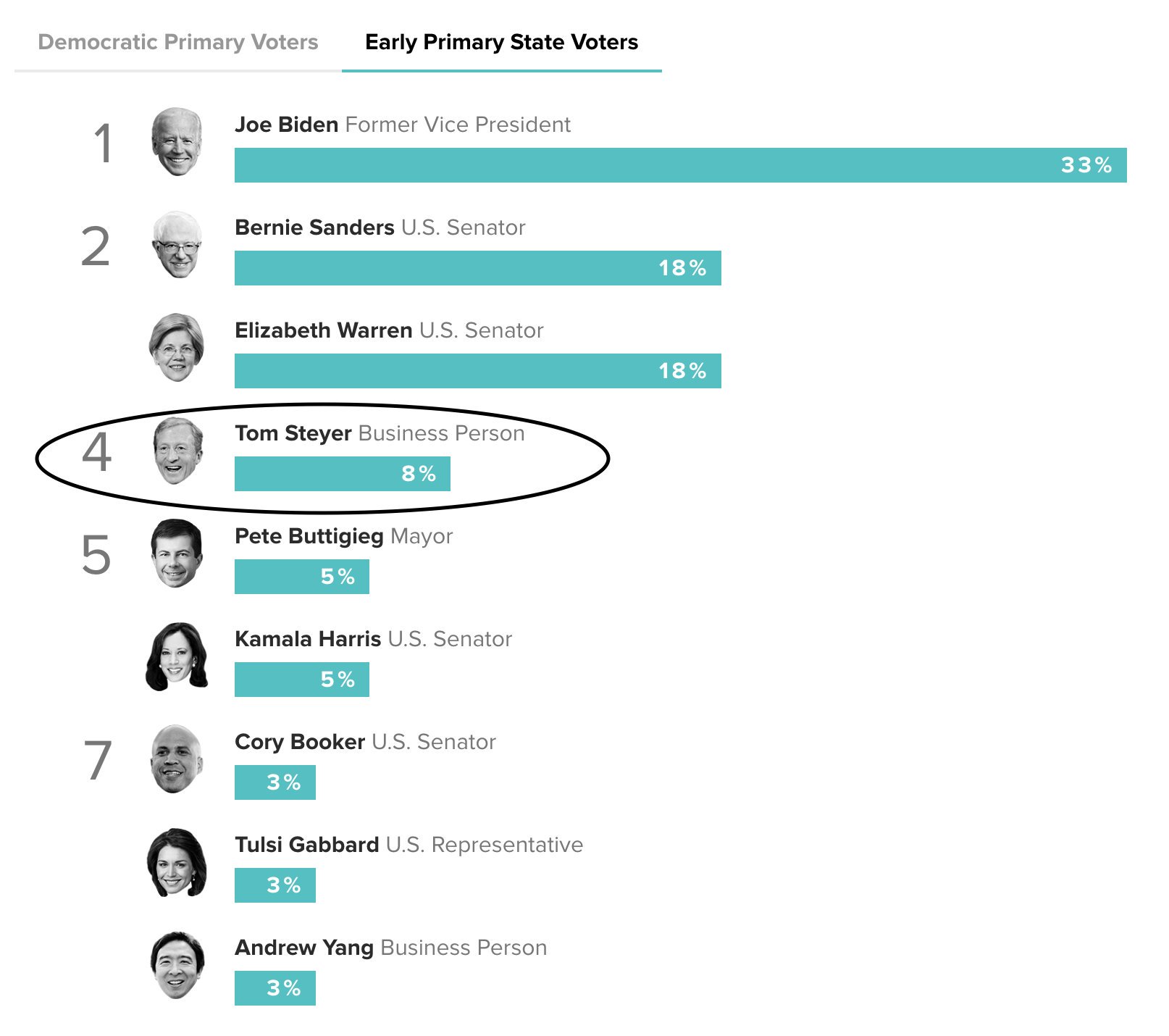Epistemic status: speculative
Andrew Yang understands AI X-risk. Tom Steyer has spent $7 million on adds in early primary states, and it has had a big effect:


If a candidate gets more than 15% of the vote in Iowa (in any given caucus), they get delegates. Doing that consistently in many caucuses would be an important milestone for outsider-candidates. And I'm probably biased because I think many of his policies are correct, but I think that if Andrew Yang just becomes mainstream, and accepted by some "sensible people" after some early primaries, there's a decent chance he would win the primary. (And I think he has at least a 50% chance of beating Trump). It also seems surprisingly easy to have an outsize influence in the money-in-politics landscape. Peter Thiel's early investment in Trump looks brilliant today (at accomplishing the terrible goal of installing a protectionist).
From an AI policy standpoint, having the leader of the free world on board would be big. This opportunity is potentially one that makes AI policy money constrained rather than talent constrained for the moment.




I don't think this is very likely (see my other comment) but also want to push back on the idea that this is "strongly negative".
Plenty of major policy progress has come from partisan efforts. Mobilizing a major political faction provides a lot of new support. This support is not limited to legislative measures, but also to small bureaucratic steps and efforts outside the government. When you have a majority, you can establish major policy; when you have a minority, you won't achieve that but still have a variety of tools at your disposal to make some progress. Even if the government doesn't play along, philanthropy can still continue doing major work (as we see with abortion and environmentalism, for instance).
A bipartisan idea is more agreeable, but also more likely to be ignored.
Holding everything equal, it seems wise to prefer being politically neutral, but it's not nearly clear enough to justify refraining from making policy pushes. Do we refrain from supporting candidates who endorse any other policy stance, out of fear that they will make it into something partisan? For instance, would you say this about Yang's stance to require second-person authorization for nuclear strikes?
It's an unusual view, and perhaps reflects people not wanting their personal environments to be sucked into political drama more than it reflects shrewd political calculation.